Matador Network's Blog, page 2311
February 24, 2014
How to f*@# up your trip to London
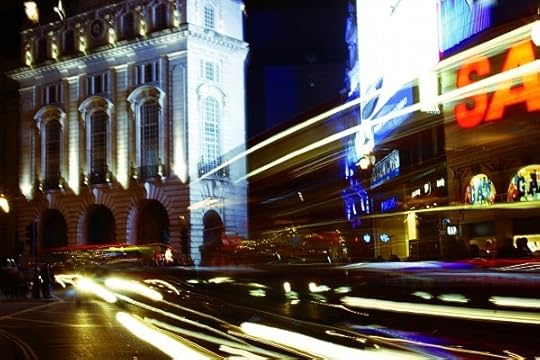
Photo: Doug Wheller
London is objectively one of the coolest cities on the planet. It’s one of those rare places — like New York, Paris, and Tokyo — to which every world traveler worth his or her salt should go. That said, there are a lot of ways to fuck up a trip to London, and a lot of travelers fall prey to them. Here’s how to ruin your trip to the best city in the world.
Mistake British reserve for unfriendliness.
This is the most common charge I hear leveled against Londoners, and it’s also the most baffling. It tends to come from Americans, who are used to friendliness being packaged in a more outgoing, bubbly kind of way. And that’s not how the English look at the world — they tend to be a little more wry, a little more ironic, and a little less open with their emotions.
Americans often mistake this for unfriendliness or rudeness, and that’s just not right. The English are really cool, friendly people when you get to know them, and if you start off thinking you’re being snubbed or insulted, you’re going to sour your interactions for the rest of your trip.
Whine about the weather.
It rains in London. Bring an umbrella. Suck it up.
Complain about the food.
London has pretty poor culinary reputation in American popular culture, and, while it’s not a Paris, New York, or Tokyo, this is mostly undeserved. There’s some delicious food in London — try the Indian, Pakistani, and Middle Eastern food on Brick Lane, or the literally perfect MEATLiquor, which serves exactly what its name promises — but the fact is, while in London, you’re going to be spending a lot of time in pubs. English pub culture is the best, but pub food isn’t good anywhere, so your mushy shepherd’s pie is hardly a surprise.
Be a teetotaler.
Look, there are lots of great places to be sober. London isn’t one of them. It has one of the best drinking cultures on the planet, and you should absolutely partake. Pub culture is my personal favorite — sitting in a nook and drinking low-alcohol beer for hours at a time while talking with friends is about as good as it gets for me. But the bar, club, and music scenes in London are incredible too.
Pub-wise, you can go pretty much anywhere in the city. If you can, avoid Wetherspoon pubs, as they’re franchised and are basically the same no matter where you are. Which isn’t to say they’re bad, just that you should try as many as you can, and get some variety in there. You won’t have any trouble finding them.
As for the charge about the beer being warm, don’t be a dick — cask ales are delicious, and unlike American brews like Coors Light, British beers don’t advertise their temperatures as the key selling point. (You have no control over the temperature, Coors! Stop pretending you do!) There are still cold light beers on tap in most pubs — order those instead.
For bars and nightlife, I prefer the Shoreditch neighborhood in East London, but there are cool spots in Soho and Brixton as well. There are places virtually everwhere in the city, but — especially if you’re an American like myself — remember to not dress like a complete fucking slob. This is London — you should never wear shorts (ever), and when you go out, don’t wear sneakers or t-shirts.
Don’t read up on your history before you go.
London is such a treat for readers and history fanatics that it’s baffling to me that there are people who go without learning about the city ahead of time. It has existed as a city for 2,000 years (with some settlements apparently well before that), so virtually every neighborhood, pub, and street corner has had something significant happen in it. My neighborhood, Spitalfields, was where Jack the Ripper hung out and, you know, murdered prostitutes. A friend of mine living in Bloomsbury was right next door to the Senate Building, which is what George Orwell based the “Ministry of Truth” building on in Nineteen Eighty-Four. My girlfriend lived a block down from 221B Baker Street — the nonexistent home of Sherlock Holmes.
You obviously can’t read everything about London before going, but at least read some Wikipedia articles about the neighborhoods you’re planning on visiting, and if possible, some works of fiction where London plays a central role: From Hell for the comic book or crime fans, virtually any Dickens for the literary types, or Neverwhere for the Neil Gaiman/modern fantasy readers.
Be afraid of being a tourist.
As in any major city, the residents have a love/hate relationship with tourists, and a lot of travelers are very uncomfortable with being identified and treated as a tourist. But London has so many great tourist attractions that this is a good way to ruin the trip. Get your picture taken in front of Big Ben, take a guided tour on top of a double-decker bus, visit the Tate Modern. This isn’t the time to be a snob — enjoy the city. Just be courteous to the people around you.
As a tourist, one of the best places to be in London is at a football game. English football fans make American football fans look tame, and the songs they’re constantly singing make the game so much more fun than pretty much any other sporting match.
Limit yourself to one area.
London has always been a bit of a balkanized city — residents tend to prefer the North Bank or the South Bank, the East End or the West End. That makes each neighborhood and area relatively distinct, which in turn makes the city a huge treat for travelers. Don’t just stick to Central London. You can’t afford it anyway, and there’s too much else to see. Go everywhere you can. You can pick the London you’re going to fall in love with. [image error]
The post How to f*@# up your trip to London appeared first on Matador Network.

6 reasons to protect our oceans

Photo: Philippe Guillaume
I’M FROM TORONTO, but for two years I lived on an island in the Caribbean. There, the locals say that from any point on the island you’re never more than 14km away from the sea. The ocean, of course, becomes a big part of the lifestyle; people make their living from fishing, while surfing, diving, and family outings to the beach are commonplace activities.
One of my fondest memories of Martinique is from last year, when I had the opportunity to witness migrating humpback whales and wild spotted dolphins in the open water. I was so excited — I squealed, I pointed, I photographed; I’d never seen anything like it.
Today, I live on another, not-so-Caribbean island: Great Britain. I’m nowhere near open water, but I still feel a connection to the sea. My Martinique experience brought home exactly how precious our oceans are — and how much there is to protect. I care deeply about ocean conservation; here are six reasons you should too.
1. Oceans are the largest ecosystem on Earth and harbor tremendous biodiversity.
Earth’s oceans make up over 90% of the habitable space on the planet, and researchers believe that 50-80% of all life is found underwater — and we’ve barely seen any of it. According to the National Oceanic and Atmospheric Administration, only 5% of the ocean has been explored, potentially leaving thousands, if not millions, of species undiscovered.

Read more about marine conservation: The 5 biggest crises facing our oceans today
Protecting the ocean means protecting all of the Earth’s ecosystems. Beaches, lakes, rainforests, swamps — all rely directly on the health of the ocean. Without it, they will surely suffer too.
2. Oceans are the lifeblood of Earth — if they go, we go with them.
The ocean regulates temperature, generates half the oxygen we breathe, absorbs carbon dioxide (which reduces the effects of climate change), influences the weather, and essentially supports all living organisms on Earth. It’s often the means by which our food and shelter are transported from one place to another. Even more basic than transporting our food, the ocean supplies us with food — one-sixth of the protein we eat, in fact.
3. The ocean is home to some of our oldest and most unique species.
The first species of shark appeared over 420 million years ago, and sea turtles practically live forever (by human standards, anyway). But ocean species also happen to be the most vulnerable. For example, according to the World Wildlife Fund, there are only around 300 North Atlantic right whales left in the world, and threats like coral destruction, ocean acidification, and invasive species are only exacerbating the problems faced by marine life.
4. Future generations of travelers will only read about the marine habitats and beaches we enjoy.

Photo: NOAA’s National Ocean Service
Take good photos, because the next generation will probably need them for textbooks. For example, scientists predict that without drastic change, the long-term survival prospects of most of our remaining coral reefs look bleak.
Sure, travelers of the future may be able to see wildlife in zoos or aquariums — but it’s just not the same. It’s like claiming that eating at a Moroccan restaurant in London is the same as exploring the souks of Marrakech.
I want my descendants to be able to benefit from the same kind of life-altering marine wildlife experiences that I had in Martinique.
5. Coral reef destruction will eventually mean no more diving / snorkeling.
Let’s get selfish for a second: I’ve never seen the Great Barrier Reef, but I would really like to one day, and surely there are plenty of people in the same boat. Diving tourism is extremely popular, and it implies that people truly do value the ocean and marine life, even if only for the reason of enjoying it on a dive trip.
Yet, there are a number of significant threats to coral reefs. One-quarter of the world’s reefs have already been destroyed due to pollution and climate change, as even marginal increases in ocean temperature throw off the delicate balances that keep reefs thriving. At the same time, part of this destruction is caused by travelers themselves — taking pieces of coral as a souvenir, more or less ‘invading’ these places rather than respectfully visiting them. But all people need is a little awareness, which brings me to my next point…
6. You should be concerned about ocean conservation because you can make a difference.
Make informed decisions about which tour companies you use, avoid purchasing souvenirs that exploit marine wildlife, take care of the beach you surf or tan on. Stop using as many plastic products, and only purchase seafood that is certified as sustainable. Educate yourself, because learning about ocean conservation will help you make choices that protect our planet’s most important resource. 

This post is sponsored by Contiki, the world leaders in youth travel. Share where you feel closest to nature for a chance to win one of three spots on a Costa Rica Unplugged adventure. Enter the Storytellers: Costa Rica contest here.
The post 6 reasons you should be more concerned about ocean conservation appeared first on Matador Network.

February 23, 2014
7 endearing images of young people swapping clothes with their parents
WHETHER YOU MAKE fun of the way your parents dress, or secretly can’t wait until you can don your own pair of “Mom Jeans,” this gallery goes beyond “Who wore it best?” I found the following images to be not only an interesting thesis for a photo essay, but sweet examples of parent/child relationships. It’s something to think about it next time your parents criticize your choice of clothing (or vice-versa). 
The post 7 endearing images of young people swapping clothes with their parents appeared first on Matador Network.

How to piss off an atheist

Photo: Just Ard
Let’s be honest: We atheists can be pretty easy to piss off. We’re known for being shrill, obnoxious, condescending, and way too willing to pick a fight.
But guess what? You’ve still gotta deal with us. Our numbers increased from 1% of the American population in 2005 to 5% in 2012, and we’re growing in much of the rest of the world as well. If the current trend continues (it will), we’ll all be living in Scandinavian-style atheist utopias someday.
Until then, here are some things you should not do if you want to peacefully coexist with us.
Try to convert us.
Look, most of us have tried the whole religion thing. We’re probably not interested. We’ve grown up seeing the institutional abuse of, say, the Catholic Church, or right-wing political Evangelicalism, and we’ve thought, “You know what? I’m just gonna skip all that mess.”
So when you try and pull us into your particular brand of belief, we’ve usually already made up our minds, and are totally done with organized religion. For some of us, there are very personal histories behind leaving religion. Take the time to learn about that instead.
Tell us we’re going to hell.
Guys, seriously: That threat doesn’t mean anything to us. We don’t believe in hell. We don’t believe in God or the Devil, so it’s basically like saying, “You’re gonna be trampled by a herd of unicorns.” Yeah, no we’re not.
In fact, talking to us in the language of your church in general — calling something we do a sin, for example — is not particularly productive. Many atheists are totally willing to talk to you about your religious beliefs. In fact, given how much we don’t believe in them, it’s kinda shocking how willing we are to talk about religion. Tell us what you believe. Don’t project your beliefs onto us. We should be able to be civil.
Lump us all together.
If you’re starting a conversation with an atheist by saying, “But you guys all believe…” then you’re already wrong. Atheism is the lack of a belief in a God. That’s it. It’s that one act of unbelief that unites us. There’s not necessarily a single common thread otherwise.
Ayn Rand, the libertarian nutcase, was an atheist. So was Joseph Stalin, the communist despot. So was neoconservative Christopher Hitchens. Noam Chomsky, the anarchist, is sometimes identified as an atheist. We can literally have any range of beliefs or opinions outside of our lack of belief in God. Ask us about them, don’t assume you know them.
Say we’re nihilists.
I mean, some of us are. But not all of us believe that life, the universe, and everything are meaningless. Some of us (myself included) believe there are countless ways to fill your life with meaning without belief in a god, and we happen to lead very meaningful, fulfilling lives. It is possible that people get along fine in life by living a different way than you do.
Deny science.
Look, I know when it comes down to a matters of belief, a certain amount of faith is involved, and you may believe some things that aren’t in any way “provable.” We can’t disprove the existence of a god any more than you can prove the existence of one.
But — some things are provable. Like evolution. And climate change. And while there are still plenty of scientific and metaphysical questions yet to be answered, these are not among them. We can have thoughtful conversations, but not if you refuse to be reasonable.
Tell us atheist societies “don’t work.”
Yeah, we’ve heard of Nazi Germany and the USSR. Yes, we know that technically their ideologies were atheistic (though Christopher Hitchens made good arguments that cults of personality share a lot of characteristics with religious societies).
These are hardly the only atheistic societies in history. Buddhism is, in many senses, an atheistic religion. Modern liberal societies — including, you know, the United States — are based on secular principles. Societies without God can work, and pulling out two ugly examples is opening a Pandora’s box you shouldn’t touch unless you want to get an earful about the Inquisition, the Crusades, or Afghanistan under the Taliban.
Tell us you need God to be kind / compassionate / a good person.
If you knew which of your friends were atheists, you wouldn’t say this. Atheists can be kind and caring people without the help of a god or a religion or a possible punishment in the afterlife because, believe it or not, kindness is inherent in some people, and not in others, regardless of religious creed. What you’re basically telling us is, “You can’t be fully human without religion.”
Be disrespectful of our beliefs.
Actually, this should go for everyone. Obviously, there are some beliefs that are impossible to respect (*cough*creationism*cough*nihilism), but for the most part, there’s no reason people shouldn’t be able to believe different things and live together peacefully, as long as their beliefs aren’t hurting anyone.
But atheists can have a huge chip on their shoulder about their beliefs. Sometimes this comes from a history of traumatic experiences with religion, sometimes it comes from complete and total frustration with the irrationality we may (sometimes hypocritically) perceive in other belief systems, but regardless, the best way to deal with it is to start off on respectful ground and then work to the places we disagree. [image error]
The post How to piss off an atheist appeared first on Matador Network.

February 22, 2014
A feel-good way to close out the 2014 Winter Olympics: Make a fake torch run
I’VE BEEN A fan of Improv Everywhere since my first pantless subway ride in 2009 (yes, that’s exactly what it sounds like) — some of their stunts are ridiculous, but what I like about this comedy group the most, is that they are all just about having a good time, and making other people happy.
I find this video to be appropriate to watch as the Olympics come to a close. People around the world have enjoyed watching the achievements of athletes, despite criticisms surrounding Sochi going into the event. It reminds us all that, political issues aside, the Olympics is a time for people around the world to come together, and celebrate the awesomeness of athleticism. 
The post A feel-good way to close out the 2014 Winter Olympics: Make a fake torch run appeared first on Matador Network.

The surf report from Kandahar

Photo: United Nations Photo/Eric Kanalstein
Here’s the situation report in Kandahar today…not quite the same as the surf report I wish I were hearing while “California Dreamin’” runs through my head as I drive into Kandahar City. While the dusty, desert landscape in no way inspires thoughts of beach vacations, the sunshine and warmer temperatures make Kandahar feel positively tropical after the freezing rains that have dominated the last two weeks in Kabul.
I’m sitting in the back of a Toyota Corolla, digesting the news that was just shared, that my Kabul guesthouse is again on the latest hit list for the suicide bombers. Not great news following the newest rumor that NDIS had reported 10 Kandahari suicide bombers have entered Kabul in the past couple of days.
Glad I’m not there right now and am figuring out where to spend my last few days in Kabul. I could move to another guesthouse, but it’s kind of a crap shoot — I move, and it could very well be into the next target. They are all targets right now.
Kandahar is a difficult province to work in. The security risk is off the charts compared to the north where I spend most of my time, and that in itself makes it difficult for any NGO to get work done in the village-to-village approach I favor. There’s also the knowledge that as the Helmand offensive transfers control of the province to the Afghan government, the focus turns to Kandahar province. But there is a women’s prison here that I’ve wanted to visit, and things fell into place to make it possible for the first look.
The warmer temperatures I welcomed when I got off the airplane are quickly banished once we’re on the road. Wearing a burqa in a car doesn’t allow for a lot of oxygen to circulate. I keep lifting the front of my bluebird straightjacket and waving it back and forth. Focusing through the net also takes some getting used to. Causes quite the headache. It’s one thing doing it for a short period of time at nothing in particular, but quite another when trying to really focus or watch the scene unfolding outside my window.
It’s 25km to the city on the most dangerous road in the province.
Men in earth-colored shalwar kameez, large shawls, and turbans whiz by on their motorcycles, looking like something out of a Mad Max movie, the wind billowing their shawls dramatically against the desert landscape. Very few women are seen until we get closer to the outskirts of the city. They wear burqas of all different colors: sage green, pale green, and a light brown outnumber the traditional bluebird. Even their blue is a slightly darker, less vibrant hue. The muted tones are gorgeous but certainly add to the heavy feel of the active city.
It’s 25km to the city on the most dangerous road in the province. It connects not just the airport but the military airfield to the city. Lots of attacks, IED, and car bombs aimed at hitting foreigners and convoys. Last week the bridge was attacked with a car bomb when a military convoy went past. As we drive past, Mohammad points it out. Not like he has to — one whole lane is missing.
As we drive, Mohammad quickly moves past the formal niceties of, “How is Kandahar?” “Kandahar is very good, thank you,” to the realities. “The burqa is a necessity not just for culture, but for kidnapping. The Taliban is not the biggest danger for you, kidnapping is.” Hence the burqa anywhere outside the airport or hotel. The hotel I’m staying at is the only one for foreigners in Kandahar — and as such, remains a target. It was attacked only a month ago by a horse-drawn carriage loaded with explosives. The road that leads to the girls school behind the hotel had three mines discovered in one day a couple weeks ago. Several government officials were assassinated recently. The list continues…. I still feel quite calm, but my radar is definitely buzzing.
The surf report it is not.
This is the province where in November, 2008, several schoolgirls were attacked with acid as they walked to school. Where the Afghans believe, “He who controls Kandahar, controls Afghanistan.” It’s the key to the country, and a fierce battle is brewing. The desire to educate anyone, boy or girl, is met with resistance in most of the province. It’s only the key cities like Kandahar City that have schools, healthcare, and internet. Outside of the city centers, it’s a wasteland. Women have little or no rights, girls can’t attend school, and the little schooling boys have is typically in a madrasa. The blue burqa I brought from Kabul is deemed a little ‘risque’ for Kandahar, as it’s only a half burqa in the front. It’s pretty telling of a community’s view on women’s rights when you can feel whoreish in a burqa.
It’s amazing to me that the Taliban can retain power and control when it puts the lives of its own people in the crosshairs of ideology. Mohammad talks about the irony of the terrorists calling themselves Taliban. The Taliban were originally religious scholars. Yet the majority of the Taliban community today are “common people,” illiterate, unable to even read the holy book they’re so invested in.
Instead, leaders with their own aims can interpret the original teachings however they like and instill that interpretation, however mutated, into the heads of young boys — forever polluting the already muddy waters, and stunting any room for the future growth of Afghanistan. Further ensuring that those we wish to empower will remain helpless victims of their own countrymen.
It may be a pipe dream that I can affect any change for good within the women’s prison in Kandahar without the security or access we’ve experienced in other areas of the country. But dream or not, it’s one worth chasing. [image error]
This post was originally published at The Long Way Round and is reprinted here with permission.
The post The surf report from Kandahar appeared first on Matador Network.

February 21, 2014
Notes from deep inside airport-land

Photo: Sophia Louise
I rush to my gate, only to realize I have an extra 45 minutes to waste. I sit down, fidgeting nervously. Children are screaming. I hear languages I don’t know how to speak. Loud voices over the intercom are hurting my ears.
I read signs I can barely understand. Flashes of college Spanish class run through my mind but nothing materializes. I smile at the little flat-faced girl next to me wearing turquoise bracelets, but her mother sees me and frowns. I find a different seat.
Life is so frail here. I’ve noticed during uncertain moments in life that people put on certain universal looks. I gather them in my brain, and when I see one, I realize the importance and vulnerability the moment holds.
I try to give out looks of empathy with my eyes. I’m looking at them and I’m thinking, Hey, you’re okay. I feel your pain. This will all be over soon. We can get through this together. I offer a soft smile but no one makes eye contact here and the gesture goes unnoticed. I save up my empathy looks for when I land.
Today’s look is something I’ve seen before. It’s a mixture of weariness and hope. It’s evident by the way they hold their hands together, dry from the lack of moisture in the air and from flipping back the pages of bargain books they bought impulsively at the airport bookstore.
The look they share is the same one that crosses people’s faces in hospital waiting rooms. It’s the same look my mother had when my brother ran his car into the side of a train. I remember the way she kept pacing. Back and forth. Back and forth. Friends and family kept repeating the same lines: Everything will be okay; everything will be fine. Soon the words became stale and bitter on their tongues, and when they realized they had nothing left to say they began to send fruit baskets in the absence of their words. My mother received 30 fruit baskets that month.
In the waiting room, we would talk about what went wrong. We would give theories, explanations, anything to understand my brother’s actions. The doctors wouldn’t let us see him yet.
Tell me, my mother pleaded to me. You knew him better than anyone.
Her eyes were big and blue, and a rose red color had formed a thick line around the rim of her eyes. There were no windows in the waiting room. There was nowhere to look except down at my hands. He was very tired, I said.
Like the hospital waiting room, the tension keeps building higher and higher here.
In the airport, a man next to me with a silver cross hanging from his neck and deep lines etched into his tan face looks out through the thick glass and onto the runway. You can never see your destination from these windows, he says to me in English.
I look out the window but I see nothing. Before I have time to respond, I become distracted by two birds trapped inside. They fly from wall to wall finding perches to rest on. When a flock of birds flies past the window, they too attempt to fly to their unknown destination.
I look at the customer service agents at their computers. The birds continue to fly until they’re confused and restless. It’s hard for them to understand where they are. They’re blind to the artificial elements of home that the airport provides.
I look around. Businessmen are talking on their cell phones, pacing around. Women are organizing their children. Other families are talking quietly to each other. How am I the only one who notices what’s going on? I look back. The man is sitting, still waiting for my response. I can tell this by the way he holds his breath. I see his belt buckle glisten under the fluorescent lights. We sit in silence until I’m sure he can’t hold his breath anymore and I get up and walk away. Like the hospital waiting room, the tension keeps building higher and higher here.
At the airport bar, I order a gin and tonic from the waitress. The bartender keeps looking at me from across the room. He has a big wide smile and a black mustache that seems to brush against his lips when he speaks. He’s smiling and saying something I can’t understand. Over the roar of the crowd in the airport bar I can barely even hear him. I consider the weight of his smile and I attempt to look for my Spanish dictionary, but I feel empty inside so I stop.
I let the gin slide down my throat until I feel the cool weight of the alcohol fill my stomach and vaporize into my pores. I keep doing this again and again until I’m at peace with the gnawing sensation in my nerves. The faint taste of lime hits the back of my throat. I want more but it’s nearly gone and I know I shouldn’t order more.
I hear the birds again. They’re singing louder and more urgent than before. I look up and see them flying back and forth across the window. Back and forth. Back and forth. The sound of the birds fills my head and my ears are beginning to hurt. I take off my earrings and set them on the table but it doesn’t help the constant ringing. It’s a pain I’ve felt before.
I take one last swallow of the remaining gin-soaked ice and let an ice cube rest on my tongue until it dissolves. A woman over the intercom announces my gate is boarding but all I can hear are the two birds incessantly chirping, flying in a dizzying spell of anxiousness. I sit there, listening, letting the noise wash over me in a cool wave until the pain dissipates into a dull ache but remains constant and unnerving long after I’ve reached my destination. [image error]
This post was originally published at Thought Catalog and is reprinted here with permission.
The post Notes from deep inside airport-land appeared first on Matador Network.

Reddit AMA from man on hijacked plane will send chills down your spine
AS IF I didn’t need something else to heighten my fear of flying, I stumbled upon an AMA (Ask Me Anything) post on Reddit, from a man around my age who, you know, was casually on his way from Ethiopia to Italy, when HIS PLANE WAS HIJACKED BY THE COPILOT.
Reddit user OK3n was enroute to Geneva, Switzerland, from Addis Ababa, Ethiopia, via Rome, when masks dropped from their compartments as the plane’s hijacker announced he was cutting off the oxygen. Within 10 hours of the hijacking, OK3n posted his story on Reddit and opened the forum up for others to ask about his experience. While the plane was able to land safely, his story still made me feel anxious:
IamA passenger on yesterday’s Hijacked plane from Ethiopian Airlines to Geneva. Contrary to news coverage, it was hell. AMA!
I’m a male, 25 Years old, I was in transit at Addis Adaba for flight ET702.
News coverage on Yahoo
Proof: Luggage tag.
The plane was hijacked one hour after take-off. This is how it went down.
After entering the plane, I went to my seat: economy class, window-side and next to the right wing. As it was around midnight, I quickly fell asleep during take-off. I was waken up an hour later due to the sound of all the oxygen mask going down. I immediatly thought « what the… » I looked at my neighbor, she seemed as confused at me: the plane was not behaving oddly so I thought it was a simple technical glitch or somebody pressed the wrong button. Everybody looked at each other, thinking what’s going on. Suddenly, a deep and angry voice talked through the cabin radio: “SIT DOWN, PUT YOUR MASKS ON, I’M CUTTING THE OXYGEN”, three times. At this point, I realized that the situation is serious: someone is in the pilot cabin and has hijacked the plane.
Damn, yo. But then, comes this:
Quickly after that, the plane suddenly started dropping down for about 8 seconds then went fast back up, then finally stablized. People were crying, yelling, praying. I was in complete panic. Cold…I quickly took away the possibilty of landing safely. As I was looking throught the window, all I could see was dark. Dark up, dark down.
For the next 6 hours, I was imagining every possible outcome of this story: from suddenly crashing into the ocean, to hitting a building, to crashing into another plane, to landing and being killed as a martyr.
This was the part that REALLY tore me up:
At this point, I remember trying to send a SMS to my family and girlfriend « There is a problem with the plane. I love you, you are the best » on a 5% battery and stressing that another terrorist would see me and shoot me. There was no network, so I decided to shut down my phone and thought of restarting it just before we crashed, so the messages would eventually come through. I held hands the whole way with my seat neighboor, a very nice, simple older italian woman. Every single second of those 6 hours of uncertainty and soon-to-be death was a psychological torture. I broke down, let everything go, said goodbye, though of my family, of moments in the past, of who will inherit my stuff and much more.
It would be really ironic if the in-flight movie happened to be Captain Phillips. Too soon?
The psychological impact is not negligible, I’m still in a state of shock. I’m a lucky bastard, I hope none of you have to experience that.
Read the full AMA thread here.
[Featured Image: Kossy@FINEDAYS] 
The post Reddit AMA from man on hijacked plane will send chills down your spine appeared first on Matador Network.

39 places making headlines in 2014
January has come and gone and, for most of us, so have our New Year’s resolutions. Still, there’s a lot to look forward to in the year 2014.
In the gallery below, we take a look at places from around the globe that are sure to be in the international spotlight, for good reasons and bad, and assess what we’re likely to face in 2014.
With places ranging from the opening of the world’s largest cave and the Wizarding World of Harry Potter to controversial stadiums and historic battle grounds, 2014 already seems like one for the record books.
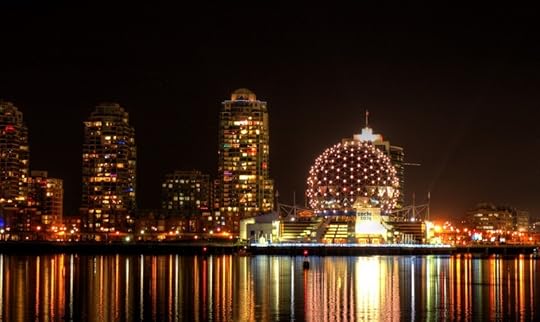
1
Sochi, Russia
The 22nd Winter Olympics are currently being held in Sochi, Russia. Already plagued with controversy regarding gay rights issues, conflicts between Russian law and the Olympic charter, security threats, and its enormous price tag, this resort city is definitely making headlines.
Photo: Jesse

2
Qatar’s FIFA Stadium
As the death toll of construction workers building the infrastructure for the 2022 World Cup in Qatar rises, this controversial stadium is sure to spark fresh waves of concern over the treatment of migrant workers, human rights, and labor issues as the year goes on.
Photo: Futbolete
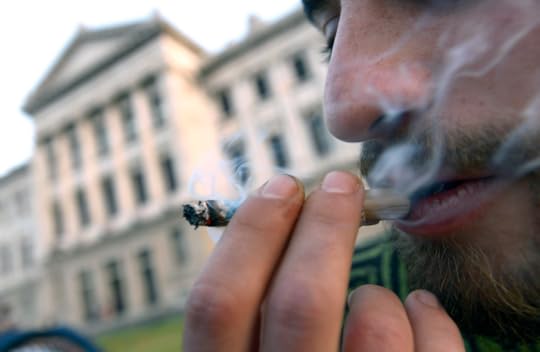
3
Uruguay
Two words: Marijuana legalization.
Photo: Dagblad van het Noorden
Intermission
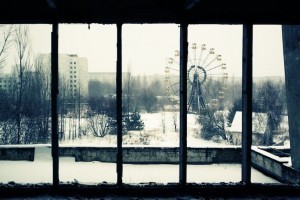
45 eerily beautiful abandoned places [pics]

75 places so colorful it’s hard to believe they’re real [pics]
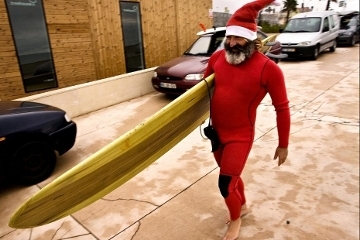
Santa Claus around the world
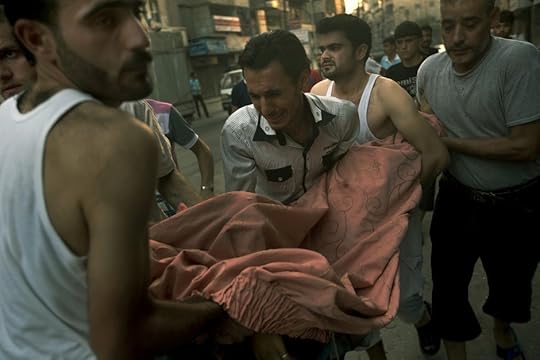
4
Syria
As peace talks continue in Geneva surrounding the conflict in Syria that has left hundreds of thousands dead and millions displaced, continued violence, official negotiations, international aid, and the refugee crisis will keep the war-torn country in the news through 2014.
Photo: International Committee of the Red Cross
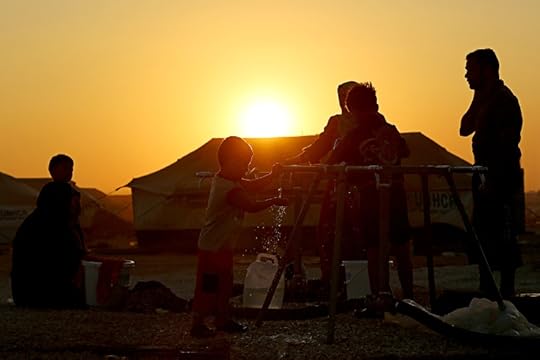
5
Zaatari refugee camp
Located about eight miles inside Jordan on the Syrian border, the Zaatari refugee camp is home to about 120,000-160,000 refugees fleeing the civil war. Many estimate the camp to be the second-largest refugee camp in the world. As the violence in Syria rages on, the camp will receive thousands of refugees and much international coverage this year.
Photo: EmadZyuod

6
Egypt
After marking the third anniversary of the revolt that brought down President Hosni Mubarak on January 25th, Egypt continues to make news in 2014. The country’s political turmoil and upcoming parliamentary and presidential elections will be highlighted throughout the year.
Photo: Rania Effa

7
Thailand
Thailand’s fierce protests demanding President Yingluck Shinawatra’s resignation and a crackdown on corruption have been the latest eruption in a political conflict that has plagued Thailand for eight years. With the upcoming elections, the possibility of protestors disrupting the vote, and fears that the violence could escalate, Thailand is very likely to stay in the news this year.
Photo: GnarlyKitty

8
Kiev, Ukraine
Hundreds of thousands of Ukrainians are protesting their government’s failure to sign an European Union integration pact that could have strengthened ties with the EU. With the passing of each day, we hear of new violence as tensions escalate throughout Ukraine.
Photo: Snamess
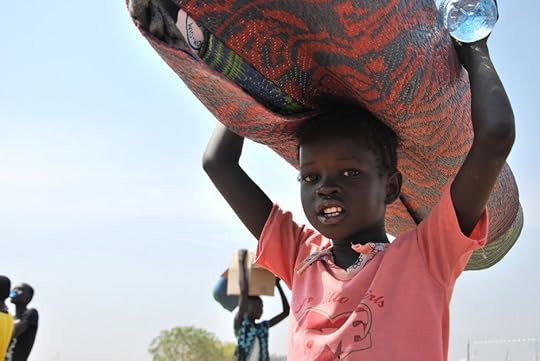
9
South Sudan
All eyes will continue to be on the world’s youngest nation as it struggles to survive amongst deadly ethnic fighting in the capital Juba and the political conflict between the loyalists of President Salva Kiir and ex-deputy Riek Machar. According to the Financial Times, ethnically motivated killings have already claimed almost 10,000 lives and displaced nearly half a million citizens.
Photo: Oxfam International
Intermission

10 places to swim with whale sharks [PICs]

15 of the most haunted places in the world [pics]
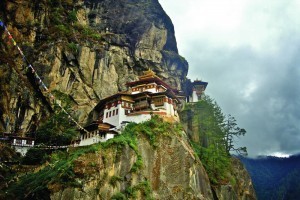
50 places you can’t reach without climbing [pics]
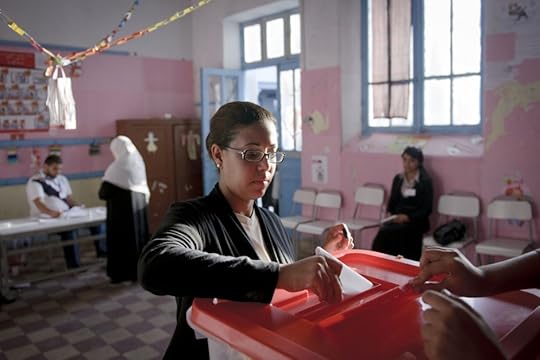
10
Tunisia
The birthplace of the Arab Spring is taking crucial steps towards democracy three years after the uprising against its former leader Zine El Abidine Ben Ali. In addition to passing a new constitution, which has already been seen as one of the most progressive in the region, the country is expected to hold presidential and parliamentary elections by the end of 2014.
Photo: tom_walker_

11
Rwanda
This year is the 20th anniversary of the Rwanda massacre, where more than 800,000 people, mainly from the Tutsi ethnic group, were brutally murdered in one of the worst atrocities of the 20th century.
Photo: DW / Carl Gierstorfer

12
Bolivia
This South American nation recently announced plans to develop the country’s first nuclear reactor with help from Iran, France, and Argentina. Only three other Latin American countries have operating nuclear programs – Argentina, Brazil, and Mexico.
Photo: Utenriksdept

13
Vatican City
Pope Francis, who has more than 3.6 million followers on Twitter, certainly captured the hearts of many during his first year in papal office. The Vatican is expecting record pilgrim attendance in 2014 due to the South American pope’s popularity, as well as the canonization of John XXIII and John Paul II on April 27.
Photo: Tudor-rose

14
Nigeria
Expect Nigeria’s new anti-gay legislation criminalizing homosexuality to keep it in the spotlight this year as the law continues to draw criticism and outrage from far beyond the borders of Africa’s most populous country.
Photo: Reuters
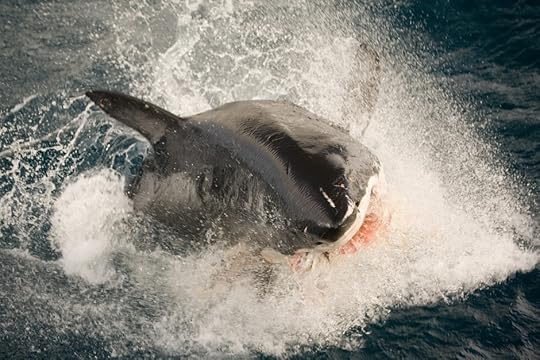
15
Western Australia
Holding the unenviable reputation as the world’s deadliest place for shark attacks, Western Australia is still trying to figure out how to address the problem. Their controversial plan to bait and destroy sharks, including the great white, has already drawn sharp criticism from conservationists.
Photo: Mshai
Intermission
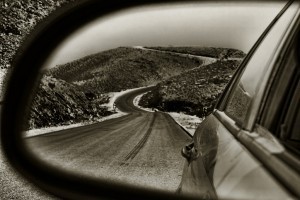
41 places so rad you have to stop driving and get out of the car [PICs]
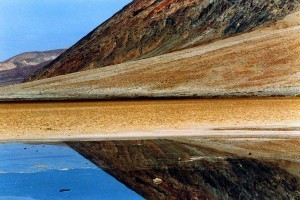
9 ‘extreme’ places you can visit (fairly) easily [pics]

Put these 10 countries on your travel list for 2014

16
Venezuela
Last year’s tragic and deadly attack where former Miss Venezuela Monica Spear and her ex-husband were shot dead in a roadside robbery pushed Venezuela back into the spotlight as one of the most violent nations in the world. The South American country’s rising murder rate, paired with its ongoing economic crisis, will certainly make headlines.
Photo: canaldenoticias

17
Brazil
Three words: FIFA World Cup.
Photo: Crystian Cruz

18
Mount Sinabung, North Sumatra
After more than 30 eruptions in January alone, Mount Sinabung in Tiga Kicat, North Sumatra will certainly force officials to keep a close eye on the 8,530-foot volcano throughout the year. More than 25,000 were evacuated after volcanic ash and gas began to rain down after a particularly large eruption early January.
Photo: Passetti

19
Wizarding World of Harry Potter – Diagon Alley
The latest and much-anticipated addition to the Wizarding World of Harry Potter, Diagon Alley, is sure to gain attention and visitors from across the globe this summer. The addition will feature a new ride at Gringotts bank, several eateries including Florean Fortesque’s Ice Cream Parlor, and shops for brooms, quills, and wands.
Photo: Scott Smith
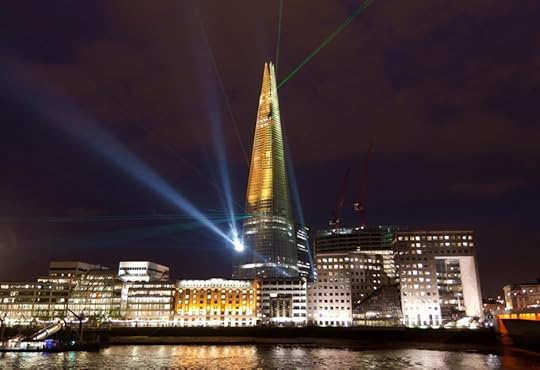
20
The Shard, UK
Billing itself as “Europe’s first vertical city,” London’s newest landmark, the Shard, still remains empty a year after its opening. This £1.5 billion building, one of the tallest in Western Europe, will continue to try to pull in some of the richest people in the world to fill its ten apartments – priced between £30m and £50m each.
Photo: Alex Groundwater
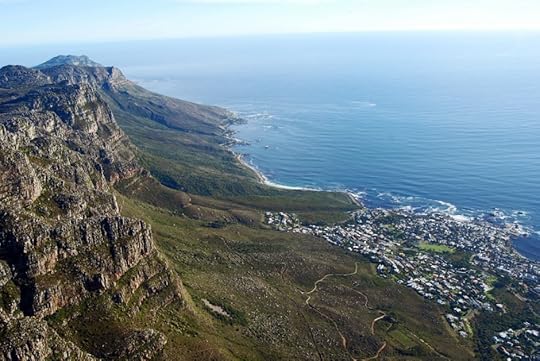
21
Cape Town, South Africa
Following the death of Nelson Mandela last year, Cape Town is sure to draw hundreds of thousands of visitors to the coastal city where he made his first address as a free man. Crowned the World Design Capital for 2014, the city is also planning 12 months of art and design events, including a pixel mosaic portrait of Nelson Mandela using one million portraits of South Africans.
Photo: Harvey Barrison
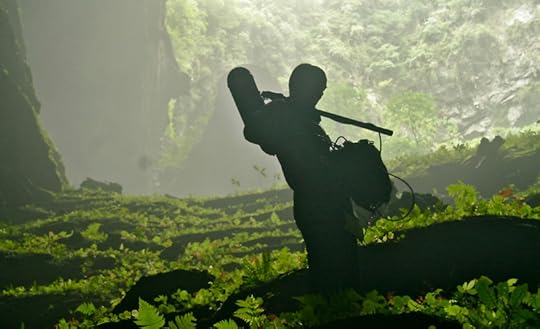
22
Son Doong Cave, Vietnam
Son Doong Cave in the Quang Binh province of Vietnam, the largest cave in the world, is now open to tourists. The cave is so big it contains a jungle, a river, and enough space to accommodate 40-story skyscrapers. Ropes and harnesses are needed to get inside the cave, with visitors required to rappel 80 meters to reach the bottom. Only 224 tourists will be allowed to visit the surreal space this year.
Photo: SonDoongCave.org
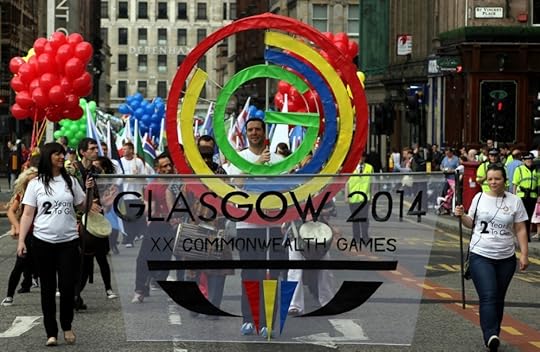
23
Glasgow, Scotland
Glasgow will be hosting the 2014 Commonwealth Games, Olympic-style competitions for Britain and former British colonies, from July 23-August 3.
Photo: Cameron King
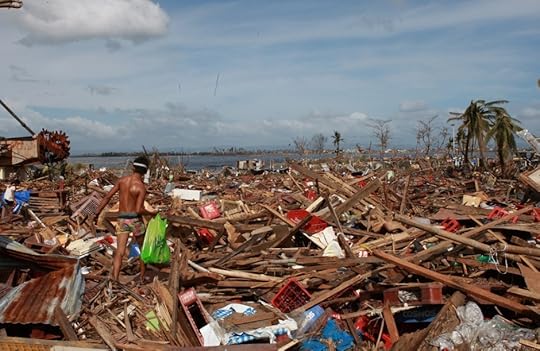
24
The Philippines
Months after Typhoon Haiyan, one of the deadliest natural disasters in the world last year, all eyes are on the Philippines as it struggles to recover.
Photo: EU Humanitarian Aid and Civil Protection

25
Riga, Latvia
This Baltic beauty will certainly be in the spotlight this year as the European Capital of Culture 2014.
Photo: mgreidans
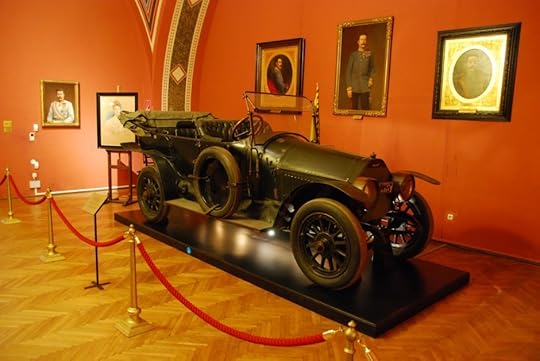
26
Sarajevo, Bosnia-Herzegovina
Marking a century since World War I, thousands are expected to descend on Sarajevo, now the capital of Bosnia-Herzegovina. The assassination of the Austrian Archduke Franz Ferdinand and his wife on June 28, 1914, in Sarajevo triggered a chain of events that led to the First World War.
Photo: Michiel2005
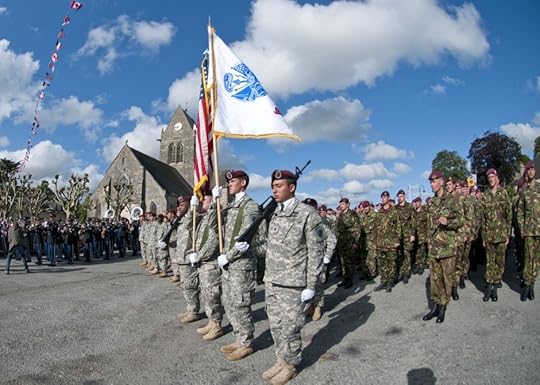
27
Normandy, France
June 6 will be the 70th anniversary of D-Day, the decisive battle of World War II that marked a turning point for the Allies. Several world leaders have been invited to mark the solemn day on the beaches of Normandy, including President Obama, Queen Elizabeth II, and her husband Prince Philip.
Photo: Fort Bragg

28
Berlin Wall, Germany
Berlin will be staging events all year long to commemorate the 25th anniversary of the fall of the Berlin Wall on Nov. 9, including an installation of illuminated balloons along a 12km path marking the former course of the wall as a “symbol of hope for a world without walls.”
Photo: Whitevoid

29
Stratford-upon-Avon, UK
Celebrating the 450th birthday of William Shakespeare, thousands of theater fans from across the globe will attend the two-day event and fireworks display in his English hometown, Stratford-upon-Avon.
Photo: Venet Osmani
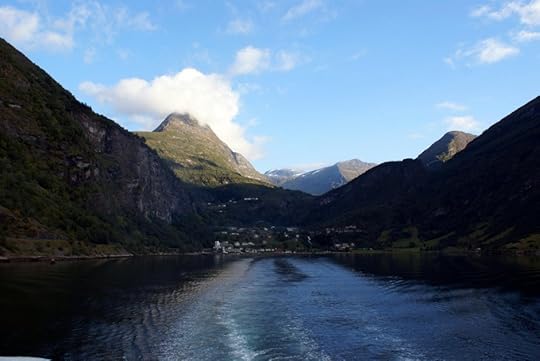
30
The Geirangerford, Norway
The Geirangerford in Norway will certainly see some more visitors this year after Adventures By Disney added the gorgeous destination to a new itinerary inspired by the Disney film Frozen.
Photo: Jose Hernandez

31
New Zealand
Tourism in New Zealand has boomed since the first Lord of the Rings movie, with thousands of fans flocking to the country to “explore the real Middle Earth.” A record 2.7 million people visited New Zealand last year, with even more expected this year as the Hobbit film trilogy draws to a close by the end of the year. Air New Zealand even unveiled a 54-metre long image of the dragon Smaug on one of its planes to celebrate the premiere of the second movie.
Photo: Sally

32
One World Trade Center, USA
After a decade of planning and construction, the One World Trade Center building, informally called the Freedom Tower, in New York will be open for business by the end of the year as the tallest building in the Western Hemisphere. The National September 11 Memorial Museum located below will also allow visitors to reflect on and remember the events of 9/11.
Photo: Xpressbus

33
India
All eyes will be on India as the world’s largest democracy prepares to elect a new prime minister and members of Parliament starting mid-April and continuing into early May. The Election Commission of India estimates that almost 788 million people are eligible to vote this year – a mammoth electorate that is larger than the entire population of Europe.
Photo: Al Jazeera English
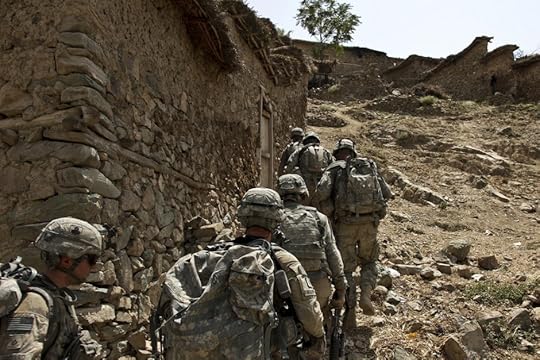
34
Afghanistan
The year 2014 will be a pivotal one for Afghanistan, as the country prepares for its upcoming presidential elections in April, the third poll since the fall of the Taliban and first peaceful transfer of power, as well as the withdrawal of NATO, US, and UK troops from the country by the end of December.
Photo: The U.S. Army
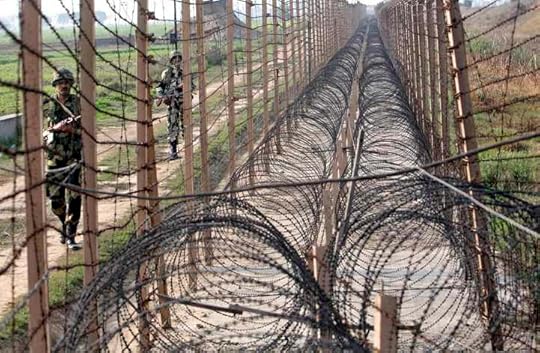
35
Pakistan
The next 12 months will also be critical for Pakistan as the United States prepares to withdraw troops from Afghanistan – a move that will likely produce significant political and economic effects on Pakistan and possibly exacerbate tensions with neighboring countries, particularly India.
Photo: Reuters/Mukesh Gupta

36
Scotland
Scotland’s referendum on September 18 to decide whether or not it should be an independent nation will be a crucial choice that will spark a broad range of social, political, and economic decisions for the country, Great Britain, and the rest of Europe.
Photo: Phyllis Buchanan
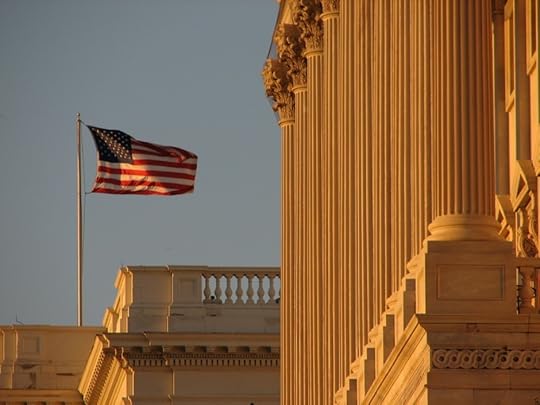
37
Washington DC, USA
As President Obama begins his sixth year in office, the US Congressional mid-term elections on Nov. 4 will be crucial in shaping America’s political agenda on various issues, including the economy, immigration, healthcare, LGBT rights, etc.
Photo: Photo Phiend

38
Sky City, China
Stealing the title from the Burj Khalifa in Dubai, Sky City in Changsha, China could soon be the tallest building in the world at 838 meters (10 meters taller than Burj Khalifa)…once it is completed. Although the actual construction of the building is scheduled to start in April, the tower’s developer, Broad Sustainable Building, claims that Sky City can be constructed in just a few months due to its prefabricated design.
Photo: Broad Sustainable Construction (screen grab)
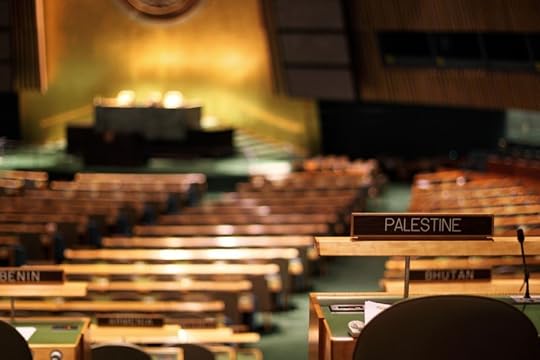
39
Palestine
Stressing the importance of resumed peace talks toward a two-state solution, the United Nations declared 2014 the International Year of Solidarity with the Palestinian People. With peace talks in the works and an ambitious goal of final status in May, the world will continue to monitor the political situation, status, and negotiations between Israel and Palestine as the year goes on. [image error]
Photo: Real.tingly
The post 39 places we’ll be hearing a lot about in 2014 appeared first on Matador Network.

Why Olympians should be having sex the night before their competition
YOU’VE PROBABLY HEARD the stories by now about the insane amounts of sex that are happening in the Olympic village: that the organizers brought 100,000 free condoms into the village (which, incidentally, is around 36 condoms per athlete), or that the use of the popular hook-up app, Tinder, has exploded during the games. But what effect has that had on their sporting ability? Does banging a quickie out in the Olympic Village make you fly any further in the ski jump? Do blue balls enhance athletic performance, or hinder it?
AsapSCIENCE has an answer as to how sex before a competition may improve, or hinder, performance. Like all things with the human body, it’s not as simple as all that — there are a lot of factors to consider, and it changes from competitor to competitor. But what I do know is this: if I were a single athlete in Sochi right now, and I saw this video, I’d download Tinder and get my freak on. 
The post Why Olympians should be having sex the night before their competition appeared first on Matador Network.

Matador Network's Blog
- Matador Network's profile
- 6 followers




